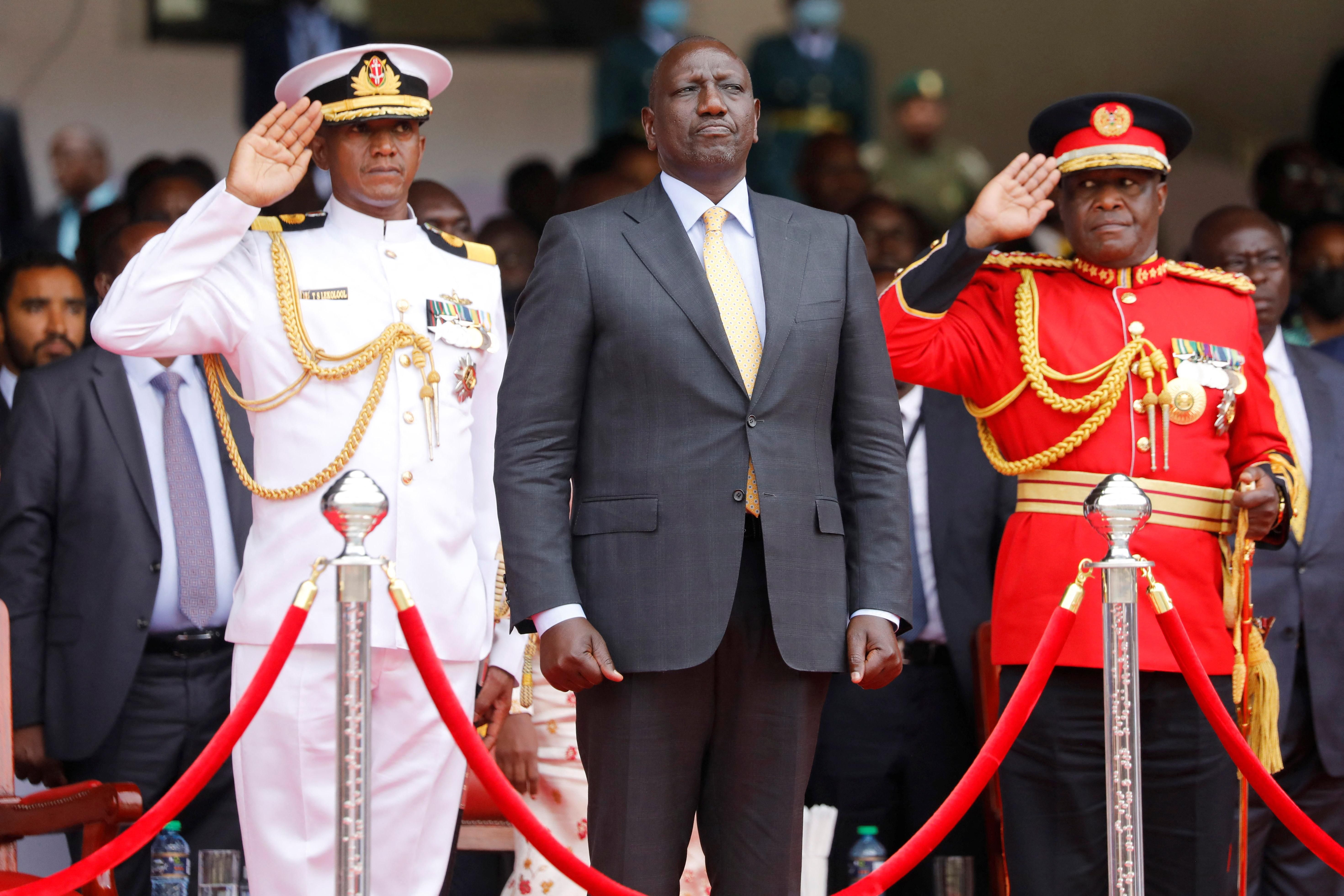What We’re Watching: Kenya’s new leader inaugurated, conflict flares between Armenia and Azerbaijan
Kenya's new leader already stirring controversy
More than a month after winning a nail-biter presidential election and a week after the Supreme Court upheld the result – which had been challenged by his rival – William Ruto was sworn in Tuesday as Kenya's fifth president. Unfortunately, the inauguration ceremony in a Nairobi stadium was overshadowed by two things. First, a stampede outside the gates left at least 60 people injured, some reportedly beaten by cops. Second, Ruto's comms team barred Kenyan media outlets from carrying the event on live TV. Instead, it gave exclusive broadcast rights to a South African pay-TV company — not a good omen for press freedom under Kenya's new leader. During the campaign, Ruto promised to be the champion of the poor — especially what he calls Kenya's "hustlers," young people working multiple gigs in the informal economy. But he faces a stagnant economy and high inflation, with three-quarters of Kenyans struggling to make ends meet. Meanwhile, Uhuru Kenyatta, Ruto's predecessor and former boss, has agreed to be the president’s envoy for peace talks in the Democratic Republic of Congo and Ethiopia.
Azerbaijan vs. Armenia: Round Three?
This week, fighting again erupted between Armenian and Azerbaijani troops near the long-disputed territory of Nagorno-Karabakh, an enclave inside Azerbaijan with an ethnic Armenian majority that has long claimed independence. The timing is worrying. Russia, the traditional powerbroker between the two sides, is distracted at the moment in Ukraine. Armenia and Azerbaijan are former Soviet Republics that earned independence when the USSR collapsed. Armenia is a majority Christian country with formal military ties to Russia. Azerbaijan is a mainly Muslim country with close ties to Turkey. The two began a war over control of Nagorno-Karabakh in the late 1980s, even before the Soviet implosion. That conflict killed about 30,000 people and pushed large numbers from their homes. Sporadic fighting continued until war began anew in 2020. That six-week round of fighting, which killed more than 6,500 soldiers, helped Azerbaijan regain ground it lost in the previous war. In this week’s flare-up, which each side blames on provocations by the other, dozens have already died. Russia claims to have brokered another ceasefire, though it’s unclear whether it will hold. If Azerbaijan, with Turkey’s backing, is using Russia’s distraction to score more gains, this conflict could quickly grow deadlier and harder to contain. Are Armenia and Azerbaijan on the brink of another war? Tune into Ian Bremmer's latest World in 60 Seconds video for his take on the conflict.
